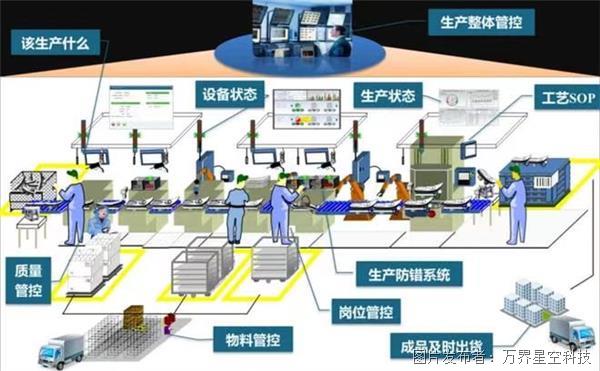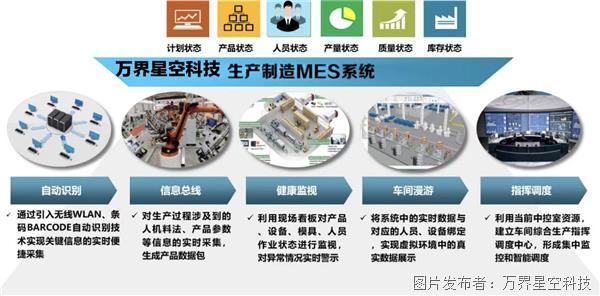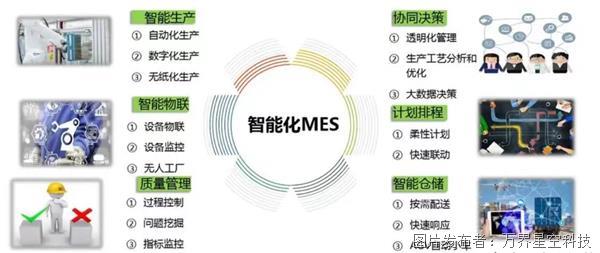1、 Demand and pain points of production management in manufacturing industry
The increasingly fierce market competition and customers' increasingly high requirements for product diversification have shortened the product life cycle, and enterprises need to Intelligent manufacturing Realize cost reduction, efficiency increase and quality improvement to improve the rapid response ability and core competitiveness of enterprises.

2、 The pain points of the production management process are as follows:
1) Production progress is opaque
Enterprise management personnel cannot understand the actual production situation in real time, and it is difficult to ensure the effectiveness of the implementation of the released production plan, which makes it difficult to predict the delivery cycle and often delays orders.
2) Difficulty in production cost control and accounting
The production process data is missing, and the problem is not found in time, resulting in waste, and the root cause cannot be traced; It is impossible to collect and calculate the cost of each production process, and dynamic cost information cannot be obtained in real time; The work efficiency of workshop workers cannot be counted, and the labor cost cannot be accurately mastered.
3) Difficulty in adjusting production plan
In the production process, the production plan needs to be adjusted quickly due to such factors as order insertion, cancellation, batch change, and delivery date change. In the absence of a system, such adjustments are often difficult to respond quickly.
4) Difficult production scheduling and low efficiency
Because it takes a long time to change the mold of the equipment or prepare for other production changes, the production efficiency will be affected if the equipment is not effectively combined.
5) It is difficult to control the complete set of materials
In order to improve production efficiency, enterprises often do not wait for the whole set of products to start production, but will go to the process to complete production in advance, which puts forward higher requirements for materials to be in place on time and in quantity. However, many enterprises often stop production because they cannot understand the abnormal consumption of materials in a timely manner.
6) Difficulty in tracing product problems
A large amount of paper is neither convenient to consult nor environmentally friendly. With traceability requirements, customers cannot accurately and quickly query all relevant traceability data of each batch of goods, and historical production data cannot be effectively used.
7) The quality system is difficult to establish
Unable to perform online detection, statistics, analysis and presentation of product quality indicators
8) The production process is difficult to prevent stupidity, error and leakage
Faced with the production mode of multi variety and small batch, the materials, personnel, process parameters, processing requirements, etc. are constantly changing, which often leads to quality and efficiency losses due to personnel's operational errors.
9) Untimely handling of emergencies
In case of equipment failure, material defect, production line material shortage, abnormal processing technology, abnormal power (water shortage, power shortage), safety accident and other abnormal events, it is difficult to quickly feedback and handle them.
10) Difficulty in outsourcing control
The production progress of the outsourcing factory is not transparent, the processing cost is difficult to check, and the cause of loss is difficult to track.

III MES system Management scope involved:
MES is a system oriented to the execution workshop ERP From the release of the plan to the warehousing of finished products, it belongs to the scope of MES. The core elements involved include "people, machines, materials, methods, environment, measurement, and energy".
People refer to the personnel who manufacture products, including production personnel, planners, dispatchers, quality personnel, warehouse management personnel, equipment management personnel, etc., and play an important role in the implementation of production.
Machine refers to production equipment, tooling, bottom control system, and tools needed in production. It is the main force of production.
Material refers to the raw materials required for production. The complete set, purchase, use, transportation and storage of materials are all related to the continuous production operation.
Method refers to the method used to produce products, which can also be summarized as production process.
Ring refers to the environment, temperature, humidity, lighting, cleanliness, etc. in which products are produced.
Measurement refers to whether the key points and methods of measurement are standard and correct.
Energy refers to the energy consumed in the production of products, such as electricity, water, etc.
3、 Core process of MES system
The process from obtaining the production plan in the ERP system to the completion and warehousing of the final products belongs to the scope of MES, and how MES drives production through core data.






